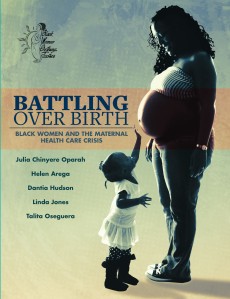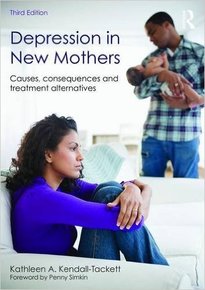Kathleen Kendall-Tackett, PhD, IBCLC, FAPA offers some help for very fatigued new mothers
Possible strategies for exhausted new mothers
In How Do Mothers Get More Sleep, I reviewed the findings from Kendall-Tackett, Cong, & Hale, (2011). Our findings suggested that breastfeeding mothers got more sleep, were less fatigued, and reported better physical health than mothers who were mixed- or formula-feeding. We also found that reported depression was significantly lower in the mothers who were breastfeeding exclusively compared with those who either mixed- or formula-fed.
 Most of us probably know what it feels like to be so tired that we think we are going to die if we don’t get some sleep. That can happen even when a mother is exclusively breastfeeding. What can help? When a mother reaches that state, addressing the fatigue immediately is important because fatigue increases depression.
Most of us probably know what it feels like to be so tired that we think we are going to die if we don’t get some sleep. That can happen even when a mother is exclusively breastfeeding. What can help? When a mother reaches that state, addressing the fatigue immediately is important because fatigue increases depression.
Here are some suggestions
- Brainstorm strategies to help cope with fatigue. Accept offers of help. Mothers may be reluctant to accept help from others, assuming they should do everything themselves. If you are an exhausted mother, rest assured doing everything by yourself is not necessary and accepting help will be both good for you and good for your baby.
- Treat depression. Depression can have a severe and negative impact on sleep quality, reducing the amount of slow-wave (deep) sleep that you get. This will makes you feel more tired during the day. Treating depression will likely improve sleep. Indeed, one of the first symptoms that antidepressants address is sleep quality. So medications may prove helpful in this case. Talk to your health care provider about any or all of these suggestions.
- Use cognitive-behavioral sleep interventions. Non-pharmacologic treatments for depression also work, including cognitive-behavioral therapy. This is another option that addresses both depression and sleep issues.
- Use medications. Sleep medications may be another alternative specifically for sleep. Most are compatible with breastfeeding. However, any mother taking a medication that makes her sleepy should not bedshare with her baby.
- Address trauma. A history of psychological trauma can cause a number of sleep issues. If a mother has a trauma history, The Post-Traumatic Insomnia Workbook will likely be a helpful resource. In addition, some medications that are used for sleep are also helpful in that they address trauma-related sleep issues. Some examples are the SARIs (serotonin antagonist reuptake inhibitors, such as trazodone) and the atypical antipsychotics (such as olanzapine).
Rule out physical conditions
Severe fatigue may also be caused by an underlying physical condition. To rule those out, the following tests may be helpful.
- Blood work to rule out hypothyroidism, anemia, autoimmune disease, low-grade infection, or vitamin D deficiency
- For thyroid, the most common thyroid function tests: TSH (thyroid stimulating hormone), T3 (the active part of triiodothyronine), T4 (the active part of thyroxine)
- Complete blood count for anemia and/or possible infection
- Erythrocyte Sedimentation Rate for inflammation. This is a sensitive, but non-specific, common test that will measure whether some type of inflammatory process is going on. An abnormal finding can indicate an infection, autoimmune disease, or even cancer. An abnormal finding should lead to further testing to narrow down a more specific cause. But this can be a helpful screening tool
- Vitamin D level to rule out a possible deficiency. Many mothers are deficient in vitamin D. Supplementing will likely improve her health and decrease her level of daily fatigue
- Sleep study to rule out sleep-breathing and sleep-movement disorders. This is not a strategy for every mother. But if other conditions have been ruled out, it can be helpful to determine whether she has either sleep apnea or restless leg syndrome.
 If limiting nighttime feedings becomes necessary to preserve a woman’s mental health, a stretch of 4 to 5 hours will be easier to implement, will meet mental health goals, and will be less disruptive to breastfeeding than trying to avoid breastfeeding for an entire night. The current recommendations to avoid nighttime feeding for 8 hours or more may likely lead to mastitis in a breastfeeding mother, or (for a pregnant nursing mother) to a possibly permanent disruption in her milk production for that pregnancy.
If limiting nighttime feedings becomes necessary to preserve a woman’s mental health, a stretch of 4 to 5 hours will be easier to implement, will meet mental health goals, and will be less disruptive to breastfeeding than trying to avoid breastfeeding for an entire night. The current recommendations to avoid nighttime feeding for 8 hours or more may likely lead to mastitis in a breastfeeding mother, or (for a pregnant nursing mother) to a possibly permanent disruption in her milk production for that pregnancy.
In any case, before limiting nighttime feedings, mothers need to be aware and give informed consent about how these interventions might impact breastfeeding. It’s not fair to mothers for health care providers to implement these types of programs without letting them know about possible negative effects. Be sure to ask about potential side effects of any treatment.
In conclusion, severe fatigue should be addressed promptly because it dramatically increases a mother’s depression risk. However, trying to address fatigue by avoiding nighttime breastfeeding or supplementing with formula will likely prove counterproductive. Fortunately, there are strategies that can help. Mothers can use help to find the best strategy.
If you are very fatigued, speak to your health care provider, lactation consultant, family, and friends for help.
Reference
Kendall-Tackett, K. A., Cong, Z., & Hale, T. W. (2011). The effect of feeding method on sleep duration, maternal well-being, and postpartum depression. Clinical Lactation, 2(2), 22-26.
Kathleen Kendall-Tackett, PhD, IBCLC, FAPA
 Dr. Kendall-Tackett is a health psychologist and International Board Certified Lactation Consultant, and the owner and Editor-in-Chief of Praeclarus Press, a small press specializing in women’s health. She is Editor-in-Chief of two peer-reviewed journals: Clinical Lactation and Psychological Trauma. She is Fellow of the American Psychological Association in Health and Trauma Psychology, Past President of the APA Division of Trauma Psychology, and a member of the Board for the Advancement of Psychology in the Public Interest. Dr. Kendall-Tackett specializes in women’s-health research including breastfeeding, depression, trauma, and health psychology, and has won many awards for her work including the 2016 Outstanding Service to the Field of Trauma Psychology from the American Psychological Association’s Division 56.
Dr. Kendall-Tackett is a health psychologist and International Board Certified Lactation Consultant, and the owner and Editor-in-Chief of Praeclarus Press, a small press specializing in women’s health. She is Editor-in-Chief of two peer-reviewed journals: Clinical Lactation and Psychological Trauma. She is Fellow of the American Psychological Association in Health and Trauma Psychology, Past President of the APA Division of Trauma Psychology, and a member of the Board for the Advancement of Psychology in the Public Interest. Dr. Kendall-Tackett specializes in women’s-health research including breastfeeding, depression, trauma, and health psychology, and has won many awards for her work including the 2016 Outstanding Service to the Field of Trauma Psychology from the American Psychological Association’s Division 56.
Dr. Kendall-Tackett has authored more than 400 articles or chapters, and is currently completing her 35th book, The Phantom of the Opera: A Social History of the World’s Most Popular Musical. Her most recent books include: Depression in New Mothers, 3rd Edition (2016, Routledge UK, in press), Women’s Mental Health Across the Lifespan (2016, Routledge US, in press, with Lesia Ruglass), Psychology of Trauma 101 (2015, Springer, with Lesia Ruglass) and The Science of Mother-Infant Sleep (2014, Praeclarus, with Wendy Middlemiss). Her websites are:























7 Pingback